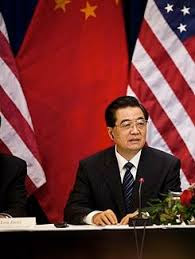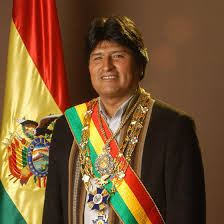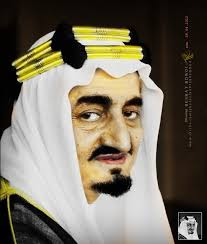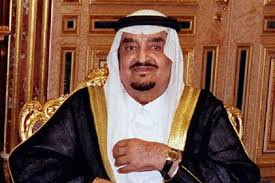Biography.
He was born on December 21, 1942, Jiangyan, Jiangsu. Another source said, Hu Jintao was born in Shanghai and came from a family of tea merchants who was the eldest of three siblings. Other sources also mentioned, there is the possibility of the Hu family out of Shanghai during the Japanese occupation. Hu also reported that the young grow in the district of Taizhou (Jiangsu Province) on the east coast is lush and beautiful.His own family Jixi claim as their homeland. Based on numerous studies, there is the possibility of the family Hu Jintao had a relationship with the birth of another famous Jixi named Hu Shi, who was a poet and a scientist in the early 20th century and became an ambassador for Generalisimo Chiang Kai-shek in Washington, DC. The problem is, when Hu Jintao had a relationship with Hu Shi, it will be hard to accept at Qinghua University in the first year of implementation of the political campaign "Anti-Right" (1959). Indeed, people with the surname Hu of Jixi known as clan well educated so that Hu Jintao may fit this description.
After completing his studies in the field of Water Conservation Engineering with an A, Hu continued to work at Qinghua University as a political assistant and identified as "prospective candidate" PKT at the university. Rector of the University of Qinghua (Jiang Nanxiang) which has a close relationship with the Central Committee of the CPC and the leaders in Beijing to pay attention to it. Jiang known Qinghua often recommend students to work at the headquarters of the CCP cadres.
During the Cultural Revolution, like most young people at that time, Hu Jintao sent to the poorest provinces in China, which has quickly Gansu and promotion several times. Hu Jintao joined the CPC in 1964. In 1965, he graduated from university with an engineering degree in the field of hydraulics.
Problem of poverty has he spent in a number of poor areas in China. Ganzu began in the Province (Northwest China) as Deputy Secretary of the CCP Ganzu 1980. Its chairman (Song Ping) were also graduates of Qinghua later became one of the leaders of the CCP conservative. Song introduced Hu to Hu Yaobang in 1982, and was appointed Deputy Secretary of the Communist Youth League leader Hu Yaobang.
Indeed, it became unusual and should be noted that Hu Jintao was able to work for the leader of the conservative group (Song Ping) and moderates (Hu Yaobang). This shows that Hu Jintao had an open mind and carefully. In 1985, he became Secretary of the CCP in Guizhou Province (China Southwestern) and showed a good reputation as a leader and seek to understand the problems experienced by people in the poor areas.
In 1988, Hu was appointed as Secretary of the CPC Tibet. This is the office that add to the controversy in a career that was previously very quiet and efficient. The riots appeared in Tibet before he arrived in Lhasa. In March 1988 the large demonstrations were then crushed with violence. Emergency laws in force, then a precedent imposed in Beijing in the face of pro-democracy movement in Tiananmen Square.
Since then he never allowed compromise on any action to separate Tibet from China, so he is considered responsible for the death of the Panchen Lama (the second highest spiritual leader in Tibetan). His name is also involved in the case of Tiananmen, which killed 218 civilians and 23 soldiers and 7,000 people were wounded in early 1989.
In 1990, he spent his time in Beijing and was selected to organize preparation of the 14th CCP Congress (1992). Congress has become important as a regulator of the transition of power after the leadership of Deng Xiaoping. In that congress, Deng Xiaoping promoted Hu Jintao of the provincial party secretary entered the room to power as "cadres across generations".
When lead PKT School since 1993, Hu Jintao made changes to encourage open discussion addressed the issue of reform. The trajectory of his career shows that he is able to work effectively. More than ten years are willing to wait and it seems he has accumulated power and initiative. His position as a substitute Jiang Zemin increasingly evident in 1998 when he became Vice President and Vice Chairman of the Central Military Commission in 1999.
Congress PKT-October 16, 2002 to confirm it as the leader of China. Congress ended by selecting nine members of the Politburo Standing Committee of the CCP General Secretary Hu Jintao as the core of the Chinese leadership. Various criticisms directed at him. In the book China's New Rulers citing China's top-secret document mentions Hu habits faithful and obedient. Gradually, he gained their respect and support regional and political spectrum.
Post becoming full when serving head of state in 2003. He succeeded Jiang Zemin resigned as Chairman of the Communist Party (2004), Chairman of the Military Commission of the Communist Party (2004), and Chairman of the Military Commission of the People's Republic of China. He served as President of the People's Republic of China until 2013. On March 13, 2013, after a vote in a parliamentary meeting in Beijing, he was replaced by Xi Jinping as President of the People's Republic of China.
China under the leadership of Hu Jintao.
Monday, October 22, 2007 Hu Jintao re-elected as Secretary General of the Chinese Communist Party (CCP) in Beijing, at the time of the five-yearly congress of the Chinese Communist Party. Hu Jintao who is still serving as president of China is not even seen smiling, he looks cool respond reelection became secretary general of the Communist Party of China. Hu Jintao 64 years was also appointed as chairman of the military commission that leads China's 2.3 million soldiers, who officially loyal to the Communist Party rather than to the state. However, Hu is not a single word expressing the efforts that have been made both himself and his supporters in maintaining power for the next five years. In fact, academics and the media have been observed lunge Hu.Behind her calm and do not like to spit a comment, Hu
since leading China in the last five years successfully plugged its influence in the political and military power as well get rid of competitors, especially Vice President Zeng Qinghong, from the membership of the Central Committee of the CCP's Politburo. In the last five years. Hu Jintao as the General Secretary of the CCP issued a policy several political reforms for the country, but reassure elite Communist Party that the party would remain dominant. "As an important part of the overall reform, political restructuring must continue to be deepened along with economic and social development. In order to deepen political restructuring, we must keep abreast of political orientation benar.kita must uphold the leadership role of the party in the center, so it says Hu Jintao ,
Behind this success, major challenges await Hu. Hu political victory is not absolute. The modern era of China's current leaders are no longer feared such a period of Mao Zedong and Deng Xiaoping. , The party leaders instead must work collectively, prioritizing consensus and coalitions. Anticipating the situation, Hu should prepare young cadres who could replace him when he arrived saatnya.untuk retreat from power.
Hu Jintao, who led the People's Republic of China is almost more than five years has managed to continue the program of pendahulinyaDeng Xioaping, Jiang Zemin for the economic transformation of the nation of "communist-socialist" to "communist-capitalist." In the last two decades of communist China successfully boost economic growth average double digits. But Hu Jintao today that still serves as the President has priorities that are more specific, ie maintain a rapid growth rate, reforming the bureaucracy more responsive despite still not democratic, and increased social spending to improve the lives of urban and rural poor. Such policies have become dogma CCP. Such steps have been initiated by Hu and Prime Minister Wen Jiabao when it first came to power in 2002. Shortly after taking office, Hu and Wen together with the farmers in Mongolia and the miners. The moment became a symbol of the government of Hu. Economic transformation in China on the one hand has improved the lives of the people, on the other hand also widens social inequalities and income between the rich with the poor comrades.
By looking at the state as such, Hu and his deputy Wen Jiabao change and loosen rules that allow the villagers - who have worked as farmers and factory workers with low salaries - moving to the city. The government also improved the social welfare networks to help pensioners and victims of layoffs companies that went bankrupt or restructured.
Although still faced with great social inequality, Hu administration in the last five years managed to improve the economic status of China's sixth-largest economy into the fourth largest in the world. The rapid growth of China's economy today pose a tremendous pollution that could harm the interests of long-term industry. For that the government this time, Hu also prioritize improvement efforts without compromising environmental protection industry interests. In addition, the central government seeks to boost revenue from local revenue at the same time combating bureaucratic corruption. The problem is, the Hu government efforts are not taken seriously by local authorities. Just a few local governments are willing to close factories producing severe pollution and finance programs of public health services of their budget.
Perkonomian advancement of China would improve the position of the country in the international world. China now wants to attempt to shift the US hegemony in Asia in particular. Goods imported commodities China is currently in Asia kapasitasnaya melebehi commodity goods from America. With the rapid economic development of China makes bold to make themselves as Olympic host. This is a remarkable achievement, where there are Asian countries that dare to host the grand event of the international community, namely the Olympic Games. China alone is sure to be the Olympic host city Beijing, which was centered in the State Capital of China. China under the leadership of Hu Jintao hosted the Olympics in 2008 wants to prove himself as the new Country Strong who was born in Asia. In the implementation of the 2008 Olympics, China has a target in addition to being a good host, wants all the overall champion in the medals table in all sports. China's desire is reasonable, because at the last Olympics in Sydney in 2004, China was at number two under the United States and differ only three gold medals. Capitalize the host and powered directly by the Chinese People make China more confident in facing the 2008 Olympics in Beijing. Based on the history of the Olympics, which managed to sit in the order of two major Olympics acquisition is State Super Power is the Soviet Union and the United States are always competing in memperubutkan position bully.
In preparation for the campaign to meet the Beijing Olympics, the Chinese government has set up some preparation, among others by creating policies that can be replicated by Indonesia mingkin that every long holiday season, the state imposed a ban on use of personal vehicles on public roads. For the public, and anyone who wishes to travel, alternative options chosen vehicle is public transportation such as bus and train. An example of this can be seen as in the city of Fu Yang, inland areas in the city of Anhui. There may be only a passing public bus to transport passengers to various destinations. This policy came into effect in October 2007. By creating this new policy,. The local government finances could save China reached US $ 160,000 for the purchase of fuel. The new rules are also said to be widely supported among the public. At the end of last month as an initial promotion, China imposed a "No Car In A Day" in 108 cities to welcome the Beijing Olympics next year. Although not as expected, but the idea of driving prohibition is the best decision given the level of pollution in China ahead of the Olympics has been very severe. This pollution comes primarily from industrial and other human activities that use coal and other fossil fuels.
In addition the Chinese government will welcome the Beijing Olympics, has been preparing for the construction of a new airport terminal in Beijing on Wednesday 19, 2007. With billions of dollars of budget funds China seeks to build a new airport with the design of a glass and steel structure is very large with graceful curve of the roof is guaranteed will give the impression to the visitors in the Chinese capital during the Olympics mid 2008. terminal 3 at Beijing Capital International Airport is a major Olympic projects designed to reduce the burden of the previous two airport terminals and accommodate the rapid growth of the city up to seven years. The airport is planned to be tested in February 2008 and is equipped with advanced baggage control system and a rail terminal to carry passengers into the city and the border. Runway capable of accommodating super jumbo Airbus A380 aircraft. The terminal building alone cost 21 billion yuan (US $ 2.8 billion). Meanwhile, 35 billion yuan (US $ 4.6 billion) is the overall cost required to build the supporting infrastructure.
After some renewed infrastructure to welcome the Olympics less than a year away its implementation, as host China have been preparing halal food for Muslim athletes and officials before and during the implementation of the 2008 Olympic Games in Beijing, while ensuring the safety and security of food and beverages. This is in accordance with the spoken by the Deputy Minister of Administration General of Quality Supervision, Inspection and Quarantine of China (AQSIQ) Wei Chuan Zhong, in Beijing at the time suggested in the press at home and abroad related to the readiness of China to prepare food for the athletes and officials who will compete 2008 Olympic Games Hu Jintao as leader of the Country People's Republic of China a major part in advancing the economy and China's industrial past five years, and the success of China became the host of the Olympics 2007 is capable of defeating some host other into one piece of evidence of how the advance of the PRC under the leadership of Hu Jintao.
Do not Forget The greatness of President Hu Jintao.
Judging from the political and human rights, China is one of the world ulcers. However, look at the economic side of China, at least in the last 10 years, when Hu Jintao became president, China's economic performance is very outstanding. Although there is a task that did not materialize, such as the overhaul of the political system remains rigid, environmental pollution, social unrest, Hu great success a matter of economic development.China calls the main media in the era of Hu's leadership as the era of greatness. The magnitude of China's economy, which in 2002 is only slightly larger than Italy, is now the number two economic power in the world after the US. Under Hu, China won the respect of the world, such as the implementation of the Beijing Olympics in 2008. The US media, such as CBS and Fox News, also presents a successful Hu from an economic standpoint.
Deng Yuwen, an editor at the government-owned daily, said there is a problem that also appeared. However, Hu has approved the appointment of Xi Jinping, a reformist, who is ready melajutkan tertuntaskan task. Joseph Fewsmith, an expert on China from Boston University, said China will not become a democracy. Many things still come under state control. However, Hu relatively successful with the motto theme of a harmonious society.
There are no perfect leaders and countries in the world. However, Hu Jintao has met the wishes of many residents, at least for free from absolute poverty, which for decades became the main color of China.
Thank you for reading this article. Written and posted by Bambang Sunarno. sunarnobambang86@gmail.com
author:
https://plus.google.com/105319704331231770941.
name: Bambang Sunarno.
http://www.indonesiansocieti.blogspot.com/2016/05/history-hu-jintao.html
DatePublished: May 16, 2015 at 10:37
Tag : History, Hu Jintao.















